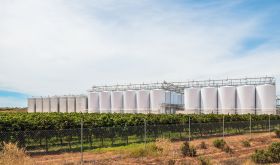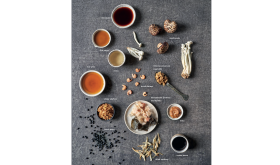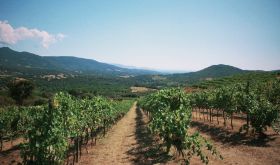One important feature of tomorrow’s annual generic tasting of New Zealand wines in its major export market the UK will be the presentation of sweet wines (‘wines over 15% potential alcohol’ in EU parlance), which were banned in Europe until finally being admitted last month, after many hard years’ negotiation. Most unfortunately, it clashes with the Burgundy primeurs tasting circuit at its most concentrated (five burgundy tastings that day) so neither Julia nor I will be able to take advantage of the special table of sweet wines planned at tomorrow’s tasting – although we dearly hope that South West Trains allow our colleague Tamlyn Currin to get there.
David Cox, European Director for New Zealand Winegrowers, commented about the new regulations that came into force last month: ‘It has taken many years of hard work by the Policy & Regulatory team at New Zealand Winegrowers in Auckland to get this agreement with the EU and they are to be commended for their tenacity. The way is now clear for the UK trade, especially the on-trade and independent trade, to be able to purchase these sensational late-harvest and noble-sweet style wines and I am delighted that we will be showing so many at our tasting in January.
‘New Zealand’s sweet wines have long been recognised internationally in wine competitions, winning gold medals, awards and trophies, including the International Wine Challenge and Decanter World Wine Awards. In fact one of our wines has won the Decanter Sweet Wine Trophy three years running.’
Apparently, Adrian Atkinson, now Pernod Ricard’s Wine Development Director and a key figure in Montana’s activity in the UK, was convinced, when he was working for Oddbins in 1996, that that this relaxation was imminent and so brought over a consignment of NZ sweet wines. They could only be given away as particularly welcome Christmas presents for Oddbins staff. Thirteen years on, his prediction has finally come true.
The majority of the wines that will now be imported into the EU will be made from noble grapes such as Riesling, Sémillon, Gewürztraminer and Sauvignon Blanc and will either be late picked or fully or partly botyrtised.
Australia, South Africa and Canada have all gone through the painful process of having their sweet wines admitted into the EU.













